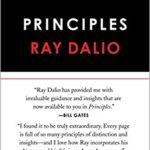Associate with people who are likely to improve you. Welcome those whom you are capable of improving. The process is a mutual one. People learn as they teach
Seneca
This is the third in a series of posts that will aim to teach lessons from the Stoics that can help you be a better leader, even if that means just leading your own life. The first one outlined what and why leaders have been inspired by the Stoics and concentrating on what you can control. The second dealt with making rational decisions. This third post is about looking for those moment where we can either teach or learn a valuable lesson.
In October 2008, just before he was elected President, Barack Obama was asked by journalist Joe Klein how he had made the decision of how to react to his pastor, Jeremiah Wright, having made controversial statements about the government and terrorist attacks. The mindset demonstrated by Obama to Klein is worth considering:

“My gut was telling me that this was a teachable moment and that if I tried to do the usual political damage control instead of talking to the American people like an adult—like they were adults and could understand the complexities of race, that I would not only be doing damage to the campaign but missing an important opportunity for leadership.”
As a result, Obama gave the “A More Perfect Union” speech, an incredible speech about race relations. A rather mundane political scandal morphed into a teachable moment.
If they’ve made a mistake correct them gently and show them where they went wrong. If you can’t do that, then the blame lies with you. Or no one
Marcus Aurelius, Meditation, Book 10
Bad companies are destroyed by crisis. Good companies survive them. Great companies are improved by them.
Andy Grove, former Intel CEO
In the 1960s, an IBM executive lost $10 million on a venture. CEO Tom Watson called into his office. The man thought he was going to be fired. Watson replied, “Fired? Hell, I spent $10 million educating you. I just want to be sure you learned the right lessons.”
There are thousands of books about successful companies. Most contain stories about what they did well. Very few contains lessons that they learnt or can be learnt from their failure. A rare exception could be ‘Principles‘ by Ray Dalio, in which he outlines principles on how to be successful that he had developed while running Bridgewater Associates. After receiving a frank memo from his top lieutenants in 1993 concerning his interpersonal performance as a manager, Ray began to develop a unique company culture based on these principles and unadorned feedback.
Read more… Practice Radical Open Mindedness
35 Books To Build Your Character: The Definitive Reading List on Humility and Ego… Cautionary Tales
Great leaders take mundane, infuriating, complex, hard, and surprising life events and turn them into something special.
Great leaders do not forgo an opportunity for leadership, whether it is leading others or leading their own lives.
Great leaders always grow and strengthen, no matter life throws at them.
It is all part of what the great German philosopher Friedrich Nietzsche would describe in his formula for human greatness as amor fati—a love of fate.
My formula for greatness in a human being is amor fati: that one wants nothing to be different, not forward, not backward, not in all eternity. Not merely bear what is necessary, still less conceal it—all idealism is mendacity in the face of what is necessary—but love it.
Friedrich Nietzsche in “Why I Am So Clever” Ecce Homo, section 10
Amor Fati. It is what it says on the tin, the obstacle is the way. Whatever life throws at you, especially if it is challenging, will benefit you. You should learn to love it.
There is a lesson in every moment, either one you can teach or something to learn. Use every moment. If you are brave and strong, dare greatly, have Grit and engage these moments you will move forward as a better person.
To bear in mind constantly that all of this has happened before. And will happen again—the same plot from beginning to end, the identical staging. Produce them in your mind, as you know them from experience or from history: the court of Hadrian, of Antoninus. The courts of Philip, Alexander, Croesus. All just the same. Only the people different.
Meditations, 10.27
If you’ve seen the present then you’ve seen everything—as it’s been since the beginning, as it will be forever. The same substance, the same form. All of it
Meditations, 6.37
Everything has always been the same, and keeps recurring, and it makes no difference whether you see the same things recur in a hundred years or two hundred, or in an infinite period
Meditations, 2.14
Over and over again…the world is continually renewed
Meditations, 7.25
Enjoy!
Scott
Source: https://dailystoic.com/leadership/


